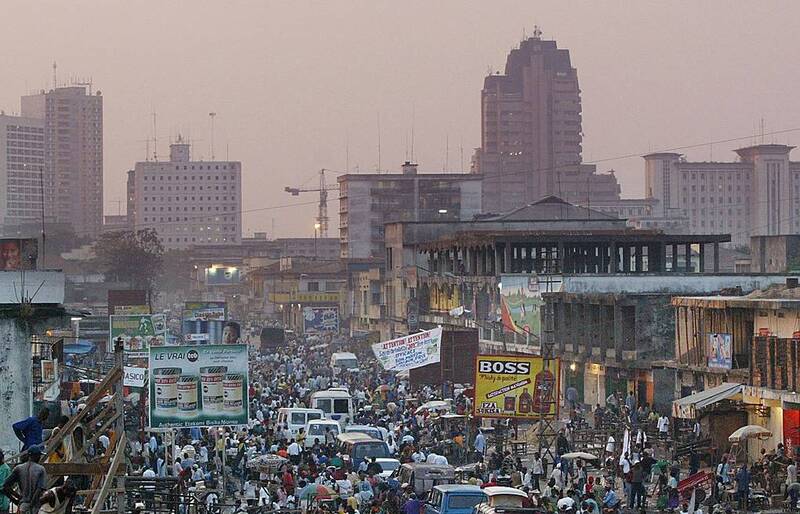Operating in the Democratic Republic of Congo (DRC) presents a wide range of security challenges for companies in sectors such as mining, energy, humanitarian aid, infrastructure, and corporate investments. Political instability, criminal activity, ethnic tensions, and remote, inaccessible terrain all contribute to a complex operating environment. Organisations require expert protection services to safeguard personnel, assets, and operations, ensuring business continuity while mitigating risk across high-threat areas such as Kinshasa, Goma, Lubumbashi, Bukavu, Beni, Butembo, Kolwezi, Kisangani, Mbuji-Mayi, and Uvira.
Political Instability and Civil Unrest
The DRC experiences periodic political volatility, protests, and civil unrest that can escalate quickly, particularly in major urban centres like Kinshasa, Goma, and Bukavu. Companies operating in these cities are vulnerable to targeted attacks, demonstrations, and disruption of operations. Expert protection services provide threat monitoring, advance intelligence, emergency response planning, and risk mitigation strategies that allow staff to operate safely, even during politically sensitive periods. Coordination with local authorities and police is often essential to ensure secure access to offices, project sites, and logistical routes.
Armed Groups and Criminal Networks
Many regions in the DRC, including Beni, Butembo, Kolwezi, and Mbuji-Mayi, face persistent threats from armed militias, criminal gangs, and local insurgent groups. Companies transporting high-value assets, operating mines, or providing services in remote areas are particularly at risk. Professional protection teams implement risk assessments, armed escort protocols, secure transportation planning, and convoy management, along with police liaison where necessary. This ensures that employees, contractors, and shipments remain protected throughout their movements.
Remote Locations and Infrastructure Challenges
Operations in mining, energy, or humanitarian sectors frequently take place in remote locations with limited road access, poor telecommunications, and scarce emergency services. Cities like Lubumbashi, Kolwezi, Kisangani, and Uvira often require site security, perimeter protection, armed or unarmed guards, emergency communication systems, and rapid response planning. Expert protection services develop tailored journey management solutions, alternate routing, and operational procedures to overcome these infrastructure challenges safely and efficiently.
Kidnapping, Hijacking, and Personal Security Threats
Kidnapping, vehicle hijacking, and targeted criminal activity are significant risks for employees traveling across Goma, Bukavu, Beni, and Lubumbashi. Companies must implement close protection, secure travel protocols, armed escort options, and real-time intelligence monitoring. Professional teams conduct advance route reconnaissance, threat analysis, and implement preventative measures to ensure safe transit for executives, technical specialists, and humanitarian personnel.
Logistics and Supply Chain Vulnerabilities
The DRC’s logistical network is exposed to risks including theft, sabotage, road insecurity, and militia interference. High-value shipments of mining outputs, energy equipment, humanitarian supplies, or construction materials require end-to-end risk management, including armed convoy escorts, cargo verification, warehouse security, and continuous tracking. Protection teams support operations across key corridors such as Goma–Rutshuru, Bukavu–Uvira, Beni–Butembo, and Lubumbashi–Kolwezi, ensuring supply chain integrity and minimising operational disruptions.
Humanitarian and NGO Operational Challenges
NGOs, INGOs, and humanitarian organisations face unique challenges, including operating in conflict-affected areas, ethnically sensitive zones, and displacement regions. Cities like Beni, Butembo, Goma, Bukavu, and Uvira often require compound protection, armed or police-assisted movement support, risk briefings, and local authority liaison. Expert security services balance ethical considerations, operational neutrality, and personnel safety, enabling organisations to deliver aid without compromising their mission or staff wellbeing.
Crisis Response and Emergency Evacuation Capabilities
When situations deteriorate unexpectedly, rapid crisis response, emergency evacuation, and secure extraction services become critical. Professional protection teams are trained to coordinate safe relocations, armed extraction, and temporary safe-haven solutions across urban centres and remote operational sites. This ensures companies and humanitarian teams can respond quickly to political shifts, militia threats, natural disasters, or violent escalations, preserving safety and continuity.
Conclusion: Expert Protection Services as a Strategic Necessity
Companies operating in the DRC cannot afford to underestimate the complex security environment. Investing in professional protection services, risk management, and operational resilience planning is critical to safeguard personnel, assets, and project continuity. By combining intelligence-driven operations, local expertise, and coordinated security frameworks, organisations can confidently navigate the challenges of the Democratic Republic of Congo while protecting their people, infrastructure, and mission-critical activities.
Contact us today at: info@associated-risks.com

